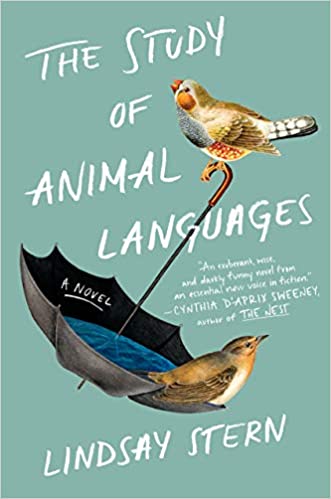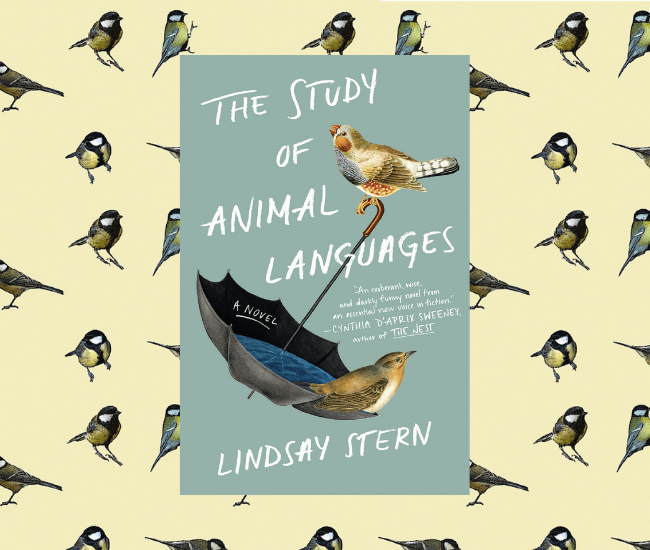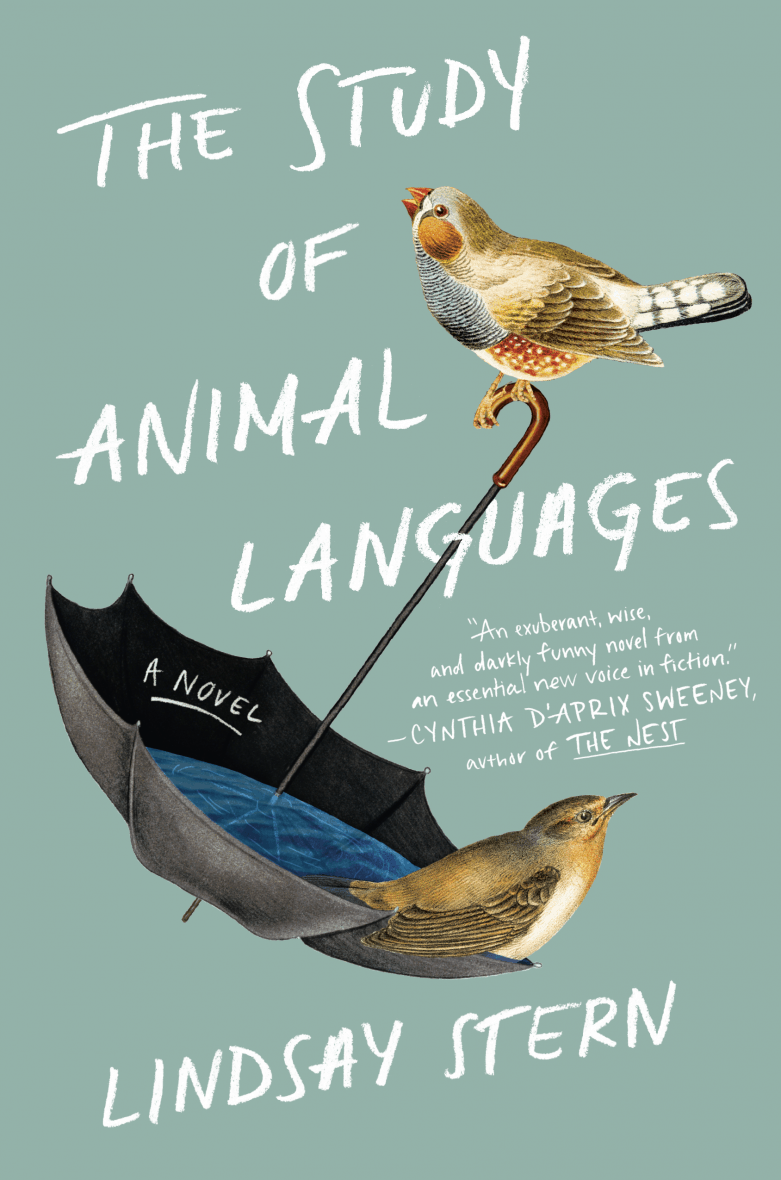The Study of Animal Languages by Lindsay Stern
Paging fans of Lisa Halliday’s Asymmetry: Lindsay Stern’s new novel, The Study of Animal Languages (Viking Books), is a thought-provoking and surefooted debut that balances questions of morality with an affecting emotional arc. Philosopher Ivan and animal linguistics expert Prue are married academics and (so-called) experts on communication whose relationship has flatlined, in part because Ivan is both dismissive of his wife’s work and threatened by the attention she’s attracted for it. Prue’s unstable father, the aptly-named Frank, arrives to listen to Prue’s talk on birdsong, seemingly the last step before she gains tenure at an unnamed Rhode Island college. Frank’s appearance sets off a cascade of calamities both humorous and stupefying. Unlike the repressed Ivan and the work-absorbed Prue, Frank dares to speak–and, soon, to shout and pontificate. (Early on, Ivan observes drily, “What [Prue] calls [Frank’s] mania strikes me more as a weakness for grandstanding.”) A bipolar exhibitionist, Frank threatens to stab the couple’s cockatiel in order to prove to an audience that animals have feelings, and he later attempts to liberate an aquarium-bound shark that he’s convinced is speaking with him. Meanwhile, Ivan shields Prue from the worst excesses of Frank’s behavior, once more bumbling the inter-marriage communication. He then misinterprets a message from Prue’s handsome colleague, propositioning an attractive woman and frightening a grad student as if to (passively-aggressively) settle the score. As the couple’s troubles worsen, Ivan, with all of his flaws and inhibitions, at last allows himself to profess his love for Prue, who, in turn, gives voice to her misgivings. Beyond a lively and compelling plot, Stern offers readers prose to admire, such as when Ivan recalls his effort to call out to an old girlfriend: “The wind was blowing east, raveling her thin blond hair and pitching her name back into my mouth.” The Ivan and Frank relationship is particularly illuminating; I thoroughly enjoyed watching the cool-headed if aloof narrator butt heads with the fiery and protective father. Stern deftly shows both men, warts and all, displaying Ivan as impatient and even surly but then pivoting to give him tender moments such as when he dotes upon his niece. As for Frank, for all of his sometimes exasperating displays, he unveils many of the paradoxes at the heart of this wise tale, such as when he observes, “[Humans] are hypocrites… Bandaging rabbits at the animal clinic and sauteing them at the brasserie.” I found myself wishing for more on Prue, who remains mysterious–but, then again, this is Ivan’s story, and perhaps Stern deliberately chose to limit what Ivan has to say about his wife as evidence of their growing distance. Stern frequently reinforces the idea that Ivan’s attraction to Prue is largely physical, as if she’s one of the many caged or contained animals scattered throughout the text. For example, upon meeting Prue, Ivan says of her face, “Like the lines of an acrostic, each angle seemed to offer up a new meaning. I felt I could study it always… and never exhaust it.” Later, he wants to “…pull her down and let our bodies say all that has to be said.” Ultimately, in spite of his earlier posturing, Ivan is left to wrestle with his newly-unleashed animal nature. The Study of Animal Languages is now available for purchase.Buy this Book!
Amazon
Genre: Fiction
Author: Lindsay Stern
Publisher: Penguin
ISBN: 9780525557460





